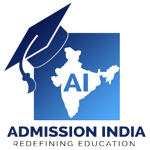

In the dynamic landscape of higher education in India, the journey through college admissions can be both exhilarating and overwhelming. As we delve into the year 2024, prospective students find themselves amidst a plethora of opportunities, challenges, and evolving trends. From changing entrance exam patterns to the emergence of new fields of study, here’s a comprehensive guide to navigating college admissions in India this year.
Exams College Admissions 2024 In India Adapting to New Patterns
The cornerstone of college admissions in India, entrance exams, continue to undergo transformations. From the traditional JEE Main and NEET to specialized exams like CLAT for law and NATA for architecture, students must stay updated with the latest syllabi, exam patterns, and marking schemes. Additionally, the integration of technology has paved the way for computer-based testing, altering the dynamics of exam preparation strategies.
The Rise of Interdisciplinary Studies
With the evolving job market and the need for versatile skill sets, interdisciplinary studies have gained prominence in college admissions. Institutions across India are offering innovative programs that blend subjects like technology, humanities, and business, providing students with a holistic learning experience. Prospective applicants must explore these emerging fields and align their interests with programs that offer a diverse curriculum.
Embracing Digital Platforms: Application Processes
In the wake of the COVID-19 pandemic, the reliance on digital platforms for the college application process has surged. From filling out application forms to submitting documents and attending virtual interviews, students must navigate online portals efficiently. Familiarizing oneself with the application timelines, requirements, and payment procedures is crucial to ensuring a seamless application process.
Beyond Academics: Holistic Evaluation
While academic excellence remains a cornerstone of college admissions, institutions are increasingly emphasizing holistic evaluation. Extracurricular activities, community service, leadership roles, and personal achievements play a pivotal role in shaping an applicant’s profile. Students are encouraged to showcase their talents, passions, and values through well-rounded portfolios that reflect their diverse interests.
Navigating Competitive Admissions: Strategies for Success
With intense competition for limited seats in top-tier institutions, strategic planning and preparation are paramount. This entails setting realistic goals, devising a structured study plan, seeking guidance from mentors, and leveraging resources such as mock tests and study materials. Additionally, exploring alternative pathways such as state-level entrance exams and institutional quotas can broaden the spectrum of opportunities.
Financial Planning: Exploring Scholarships and Grants
The cost of higher education can be a significant concern for many families. Hence, exploring avenues for financial aid, scholarships, and grants is imperative. Institutions, government schemes, corporate sponsors, and non-profit organizations offer various scholarships based on academic merit, financial need, and specific criteria. Students must research and apply for these opportunities to alleviate the financial burden of pursuing higher education.
Seeking Guidance: The Role of Counselors and Mentors
Navigating the complexities of college admissions can be daunting, but students need not embark on this journey alone. School counselors, private consultants, and mentors can provide invaluable guidance, support, and insights throughout the application process. From selecting suitable programs and drafting compelling essays to preparing for interviews, leveraging the expertise of mentors can significantly enhance one’s prospects of securing admission.
Adapting to Uncertainty: Flexibility and Resilience
In an era marked by rapid changes and uncertainties, adaptability and resilience are indispensable traits for aspiring college students. From unforeseen disruptions in exam schedules to shifts in admission criteria, students must remain flexible in their approach and persevere through challenges. Cultivating a growth mindset and maintaining a positive attitude can empower students to navigate uncertainties and emerge stronger from adversity.
Making Informed Decisions: Research and Reflection
Amidst the flurry of options and decisions, it’s essential for students to embark on a journey of self-reflection and research. By evaluating their academic interests, career aspirations, and personal values, students can make informed decisions regarding their choice of college and program. Factors such as faculty expertise, infrastructure, industry collaborations, and alumni networks should be meticulously assessed to ensure a fulfilling academic experience.
Embracing Diversity: Building Inclusive Communities
As students embark on their college journey, embracing diversity and fostering inclusive communities are pivotal for creating enriching learning environments. Institutions that prioritize diversity, equity, and inclusion not only celebrate the uniqueness of each student but also cultivate empathy, understanding, and cultural competence. Prospective applicants should seek out colleges that champion diversity and offer opportunities for cross-cultural engagement and dialogue.
Conclusion
In conclusion, navigating college admissions in India in 2024 demands a blend of strategic planning, adaptability, and self-reflection. By staying abreast of evolving trends, leveraging resources, and seeking guidance from mentors, students can embark on a transformative educational journey that aligns with their aspirations and values. As they navigate the labyrinth of college admissions, may they embark on a path of growth, exploration, and discovery, poised to make meaningful contributions to society and shape the future of India’s higher education landscape.
